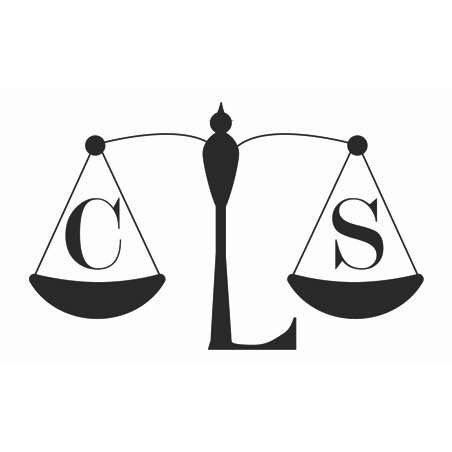Best Franchising Lawyers in Yemen
Share your needs with us, get contacted by law firms.
Free. Takes 2 min.
Or refine your search by selecting a city:
List of the best lawyers in Yemen
About Franchising Law in Yemen
Franchising in Yemen presents unique opportunities and challenges within the country's business landscape. As a commercial strategy, franchising allows businesses to expand their brand and operations through local franchisees under a licensing agreement. Yemen's franchising framework is shaped by its civil law system, influenced by Islamic law, which impacts contractual agreements and business operations. Given the socio-economic challenges and evolving business regulations, understanding the legal landscape is crucial for both franchisors and franchisees looking to establish or continue their business operations in Yemen.
Why You May Need a Lawyer
Engaging in a franchising business within Yemen can involve complex legal and regulatory requirements where legal assistance may be crucial. You may need a lawyer in situations such as:
- Drafting and reviewing franchise agreements to ensure they align with Yemeni law and protect your interests.
- Navigating regulatory compliance for foreign investments and commercial registrations.
- Resolving disputes between franchisors and franchisees, including breaches of contract.
- Understanding tax obligations and financial disclosures specific to franchising operations.
- Acquiring or transferring franchise rights and licenses.
Local Laws Overview
The Yemeni legal framework for franchising is primarily governed by civil and commercial laws, while Islamic principles influence contractual obligations. Key aspects include:
- Contractual Freedom: Franchising agreements must comply with general contract laws, ensuring terms are clear and consensual.
- Intellectual Property Protection: Ensure trademarks and other intellectual properties are registered in Yemen to safeguard the brand’s identity.
- Regulation of Foreign Investments: Foreign entities must comply with Yemen’s investment laws, which may include joint ventures or other local requirements.
- Taxation: Familiarity with local tax codes and obligations relating to franchising revenue, royalties, and profits is necessary.
Frequently Asked Questions
What is the legal basis for franchising in Yemen?
Franchising in Yemen is governed by general commercial and contract law, with no specific franchising law, influenced by both civil and Islamic law principles.
Do I need a license to operate a franchise in Yemen?
Yes, foreign franchisors typically need a commercial license and may be subject to additional local business and investment regulations.
How can I protect my brand as a franchisor in Yemen?
Registering trademarks and intellectual property rights with the appropriate governmental bodies in Yemen is crucial to protect your brand.
Are there any restrictions on foreign franchises in Yemen?
Yes, there are restrictions and foreign franchises must adhere to investment laws which may include local business partnerships or other regulatory requirements.
What should be included in a franchise agreement?
A franchise agreement should cover the terms of the relationship, intellectual property rights, territorial rights, fees, training, support, and dispute resolution mechanisms.
How are disputes between franchisors and franchisees resolved in Yemen?
Dispute resolution is typically addressed in the franchise agreement through arbitration or local courts, often influenced by Islamic and civil law principles.
Are there any special tax considerations for franchising in Yemen?
Yes, franchising income, such as royalties, may be subject to taxation. It's essential to comply with Yemen's tax obligations to avoid penalties.
Can I transfer my franchise rights to another party?
Transferring franchise rights usually requires the franchisor’s consent and must be done in accordance with the franchise agreement and local law.
Do franchise agreements need to be in Arabic?
While agreements can be drafted in English, an Arabic translation is recommended for clarity and for use in Yemeni legal proceedings.
What support can a franchisor expect to provide in Yemen?
Support often includes training, marketing, operational guidance, and product supply to help franchisees maintain consistency with the brand’s standards.
Additional Resources
For further assistance, consider reaching out to the following resources:
- The Ministry of Industry and Trade: Overseeing business registrations and trademarks.
- The Yemen Investment Board: Provides guidance on foreign investments and business opportunities.
- Local Chambers of Commerce: Offer networking and business development support.
- International Franchise Associations: For best practices and industry standards.
Next Steps
If you find yourself needing legal assistance in franchising, consider the following steps:
- Conduct initial research to understand franchising regulations and requirements in Yemen.
- Consult with a legal expert specializing in Yemeni commercial law and franchising.
- Draft or review any necessary contracts and agreements, ensuring compliance with local law.
- Register your business and intellectual property with the relevant authorities.
- Engage in continuous consultation to address any emerging legal issues or changes in franchising law.
Lawzana helps you find the best lawyers and law firms in Yemen through a curated and pre-screened list of qualified legal professionals. Our platform offers rankings and detailed profiles of attorneys and law firms, allowing you to compare based on practice areas, including Franchising, experience, and client feedback.
Each profile includes a description of the firm's areas of practice, client reviews, team members and partners, year of establishment, spoken languages, office locations, contact information, social media presence, and any published articles or resources. Most firms on our platform speak English and are experienced in both local and international legal matters.
Get a quote from top-rated law firms in Yemen — quickly, securely, and without unnecessary hassle.
Disclaimer:
The information provided on this page is for general informational purposes only and does not constitute legal advice. While we strive to ensure the accuracy and relevance of the content, legal information may change over time, and interpretations of the law can vary. You should always consult with a qualified legal professional for advice specific to your situation.
We disclaim all liability for actions taken or not taken based on the content of this page. If you believe any information is incorrect or outdated, please contact us, and we will review and update it where appropriate.
Browse franchising law firms by city in Yemen
Refine your search by selecting a city.








